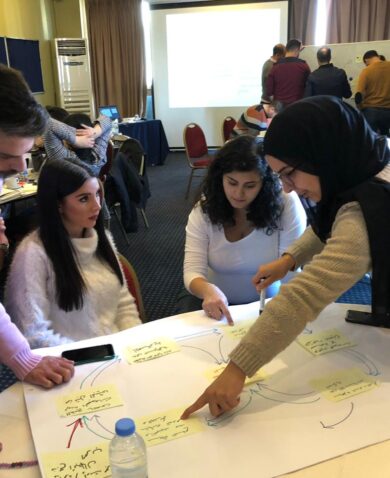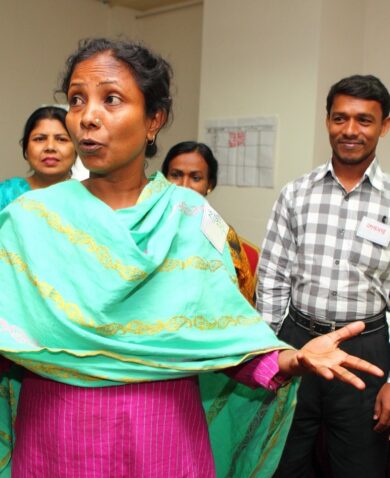Violent extremism is a pressing global issue that threatens economic growth, youth employment, and geopolitical stability. In the global development community, countering violent extremism and preventing violent extremism continue to be high priorities. Good governance is widely accepted as being key to both, but what does this mean in practice?
This question was the focus of a January 17 panel discussion hosted by Chemonics International and the Alliance for Peacebuilding. From 2 to 4 p.m. EST, Chemonics and the Alliance for Peacebuilding convened experts to explore “Effective Approaches to Good Governance for Countering Violent Extremism: Experience from the Middle East, North Africa, and West Africa.”
Todd Diamond, a director in Chemonics’ Middle East and North Africa Division, moderated the panel discussion. The four panelists were:
- Cameron Berkuti — former chief of party, USAID/Iraq’s Governance Strengthening Project
- Frances Brown — fellow, Democracy and Rule of Law Program, Carnegie Endowment for International Peace
- Leanne Erdberg — director of countering violent extremism, U.S. Institute of Peace
- Joshua Owens — former deputy chief of party, USAID/OTI’s Libya Transition Initiative
The event explored how practitioners can more effectively design and implement programs, whether they focus on short-term stabilization or on longer-term institutional capacity building. It became clear early in the conversation that understanding specific political, social, and economic contexts was key to finding ways to connect to and empower local communities in areas where violent extremism was rampant. The panelists agreed that governance should be seen as an ecosystem: To be effective, interventions supporting good governance and citizen engagement should consider all parts of the system, rather than focusing on one aspect and potentially becoming siloed.
“Anytime we think about increasing ‘voice,’ we need to think about increasing accountability,” Ms. Brown explained, when speaking about the importance of civic engagement with governance. When citizens have a stronger voice, the government must be accountable to prevent further frustrations.























